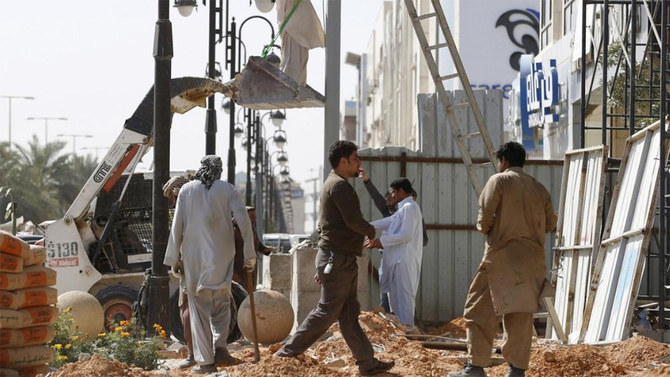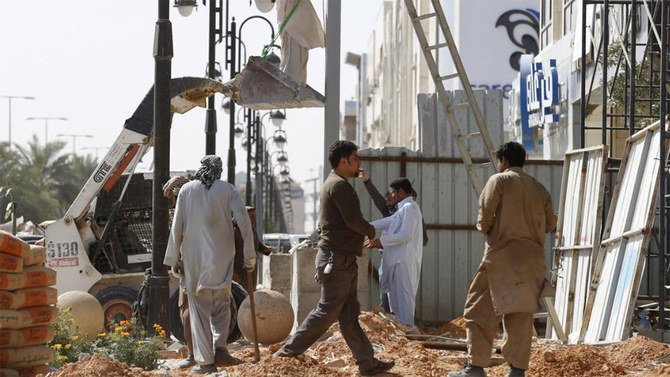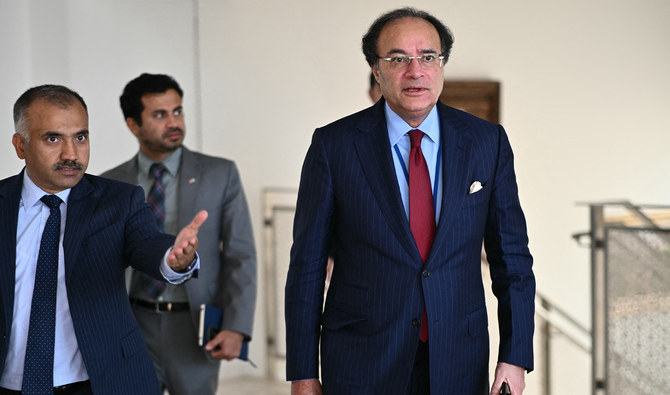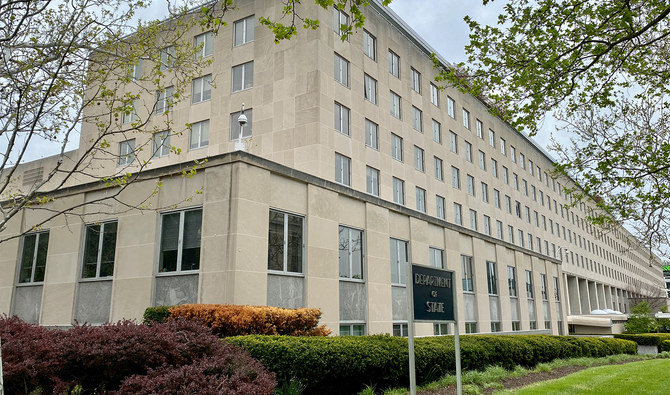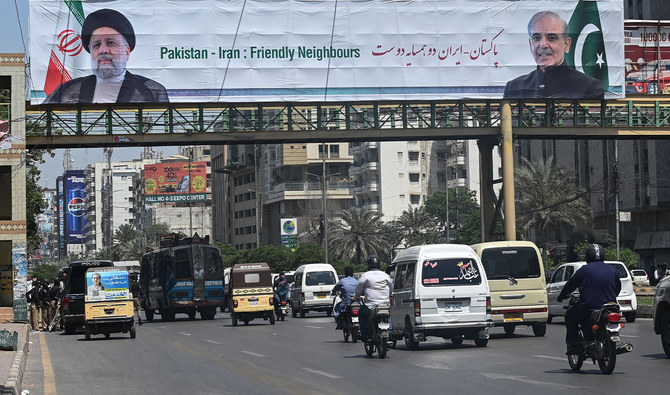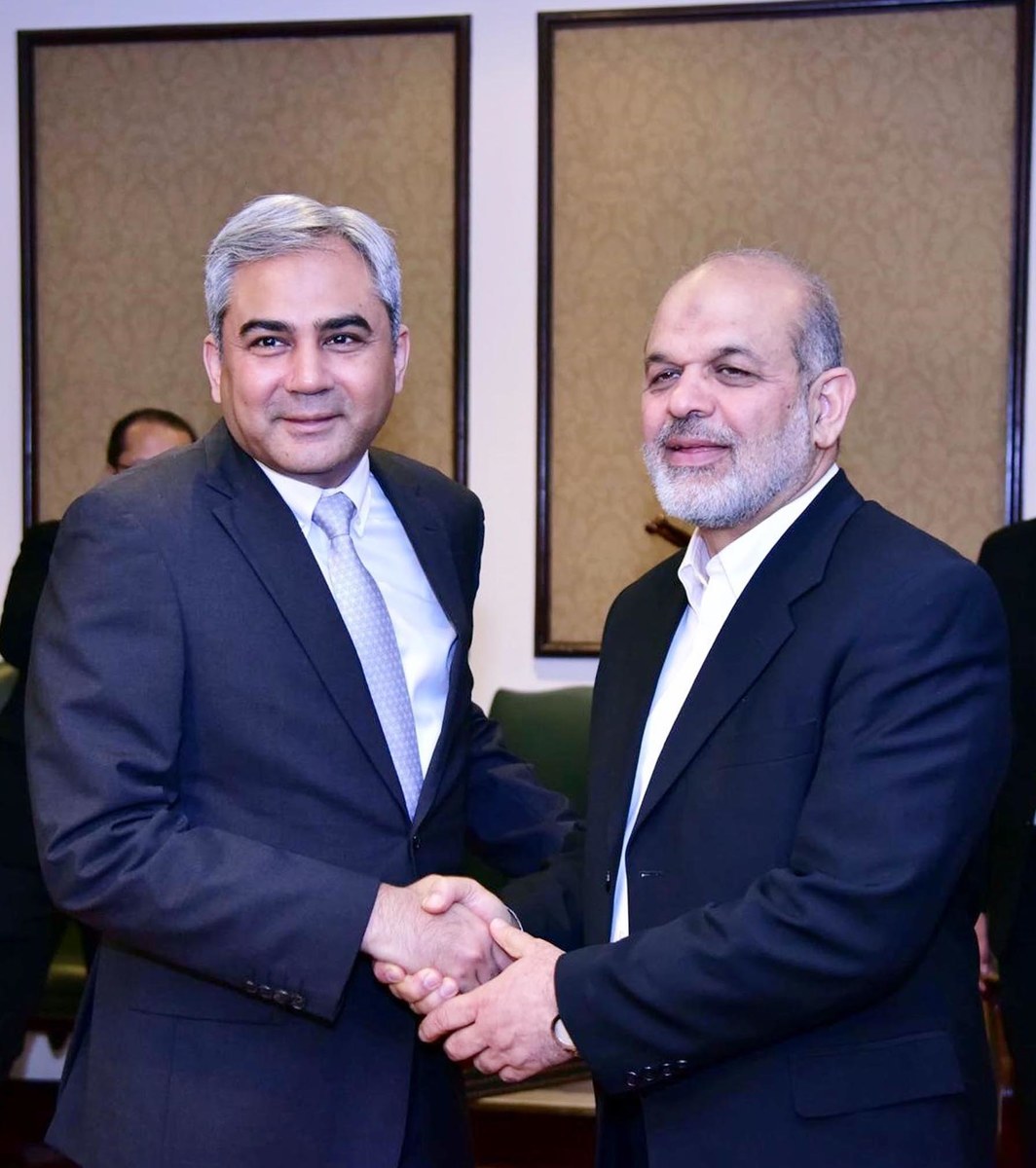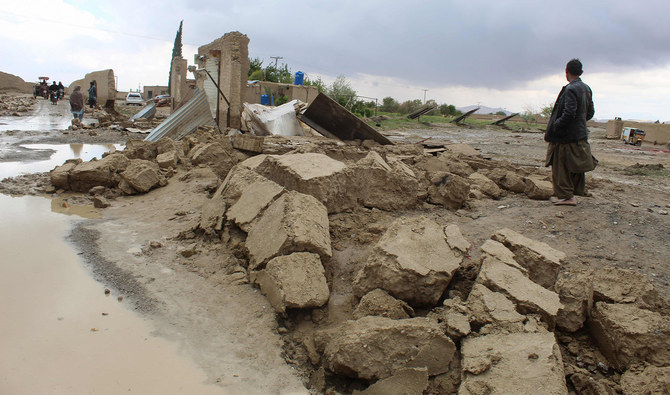KARACHI: Pakistani and United Arab Emirates (UAE) officials performed the groundbreaking of a $175 million Bulk and General Cargo terminal on Monday, describing it as an “important breakthrough” for the South Asian country in the maritime sector.
Under a government-to-government (G2G) agreement between Pakistan and the UAE earlier this year, a new 25-year concession agreement was signed between AD Ports Group and Karachi Port Trust (KPT) in Feb. 2024 to outsource operations of the bulk and general cargo terminal.
Under the terms of the agreement, Karachi Gateway Terminal Multipurpose Limited (KGTML), a joint venture between AD Ports Group, as a majority shareholder, and Kaheel Terminals, a UAE-based company, will develop, operate and manage the Bulk and General Cargo Terminal, berths 11 to 17 at Karachi Port’s East Wharf. The move is expected to enhance Karachi’s position as a key player in the maritime industry.
Qaiser Ahmed Sheikh, Pakistan’s minister of maritime affairs, unveiled the KGTML plaque at Karachi Port on Monday, describing the UAE’s investment as a “very important breakthrough” which has increased the interest of other players in the maritime sector.
“This investment from Abu Dhabi Ports is very important for Pakistan, it is a breakthrough,” Sheikh told Arab News at the sidelines of the event. “It is the first investment in terminal and following this, there are many other companies who are also interested in Pakistan.”
The minister shared that Maersk Line, the largest owner and operator of US flag vessels, has also expressed interest in investing in Pakistan.
“We are looking forward to investment from other companies like, you see, other shipping lines,” Sheikh said. “We are having a meeting (on Apr. 25) with Maersk Line and we are also expecting (investment).”
Khurram Aziz Khan, KGTL’s chief executive officer, said AD Ports plans to invest about $157 million for the bulk terminal’s development, adding that it would handle all kinds of bulk cargo.
“This is basically a multi-purpose terminal which will not only handle grains but also fertilizers and other kinds of export and import, dirty or clean cargo as well,” Khan told Arab News.
“We are making a long-term investment to make it a regional hub not only for containers but also for the multi-purpose facilities,” Khan explained, adding that the project, once completed, will also save the time and cost of doing business.
He informed that AD Ports has an overall plan of investing about $395 million in the development of the container and cargo terminal.
“We have an overall plan of $220 million investment in the container terminal and $175 million of investment in the multi-purpose bulk terminal,” the KGTL chief said.
AD Ports Group also presented Sheikh a cheque for the upfront fee payment amounting to $50 payable to KPT as per the terms outlined in the Agreement for Outsourcing of Operations of Bulk and General Cargo Terminal.
Abdul Aziz Baloshi, chief executive officer of Fujairah Terminals, AD Ports Group, said the group was expanding its operations in Pakistan.
“Progress will be made through investment in the supply chain,” Baloshi said at the event. “Karachi port is the future of Pakistan and Pakistan is included in our priority list in the region.”
UAE’s Consul General Bakheet Atiq Al-Remeithi said Emirati investors are interested in investing on a large scale in Pakistan. He said their areas of interest included ports and shipping, railways, and other infrastructure.
“Apart from port investments, investments will be made in railway infrastructure, export zones, and other sectors,” Al-Remeithi shared.
The port operator hoped that the facilities will help Pakistan become the regional hub for handling export and import of cargoes from Central Asian countries.
The agreement for the construction of the Bulk and General Cargo terminal at the Karachi port was based on the concession agreement secured by AD Ports Group to develop, operate and manage container terminal at berths 6-10 at Karachi port’s East Wharf in June 2023.
AD Ports Group had signed a 50-year concession agreement with KPT to secure the terminal’s operations.


